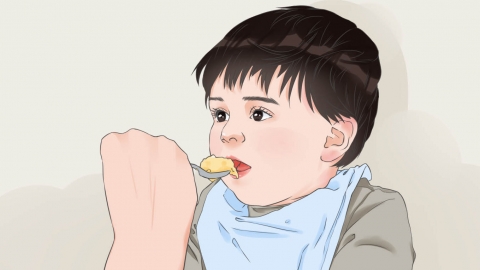What should I do if a three-year-old child doesn't want to eat?
Generally, a three-year-old child's lack of appetite may be caused by improper feeding, insufficient physical activity, indigestion, hypothyroidism, enteritis, and other factors. Measures such as general treatment and medication can help improve the condition. Prompt medical consultation is necessary, and treatment should follow medical advice. Details are as follows:

1. Improper feeding: If parents feed their child excessive snacks or high-calorie foods, the child may not feel hungry during regular meals, leading to poor appetite. Adjust feeding methods by establishing fixed times and portions for meals, and avoid giving excessive snacks or high-calorie foods before meals.
2. Insufficient physical activity: If a child's daily physical activity is limited, gastrointestinal motility may weaken, naturally affecting appetite. Additionally, lack of exercise can impact the child's metabolism and growth development. Increase the child's daily physical activity and encourage outdoor activities and sports.
3. Indigestion: Indigestion may be caused by improper diet, cold exposure to the abdomen, or gastrointestinal motility disorders. When food cannot be absorbed and utilized timely by the body, symptoms such as bloating, diarrhea, and reduced appetite may occur. Under a doctor's guidance, administer medications such as oral solution for indigestion, children's digestive pills, or herbal remedies to promote digestion.
4. Hypothyroidism: Hypothyroidism is a condition caused by insufficient secretion of thyroid hormones. When affected, the child's immune system weakens, the endocrine system is impacted, and symptoms such as reduced appetite occur. Follow medical advice to use medications like methimazole tablets, propylthiouracil tablets, or carbimazole tablets to supplement thyroid hormones.
5. Enteritis: Enteritis is an inflammatory bowel disease caused by bacterial or viral infections. During the illness, the child may experience symptoms such as diarrhea, increased frequency of bowel movements, and foul-smelling stools, which can also affect normal appetite. Follow medical advice to administer medications such as montmorillonite powder, mosapride citrate oral solution, or domperidone tablets, which protect the intestinal mucosa and promote gastrointestinal motility.
Maintaining good living and eating habits for the child in daily life is an important method for preventing and managing poor appetite.





